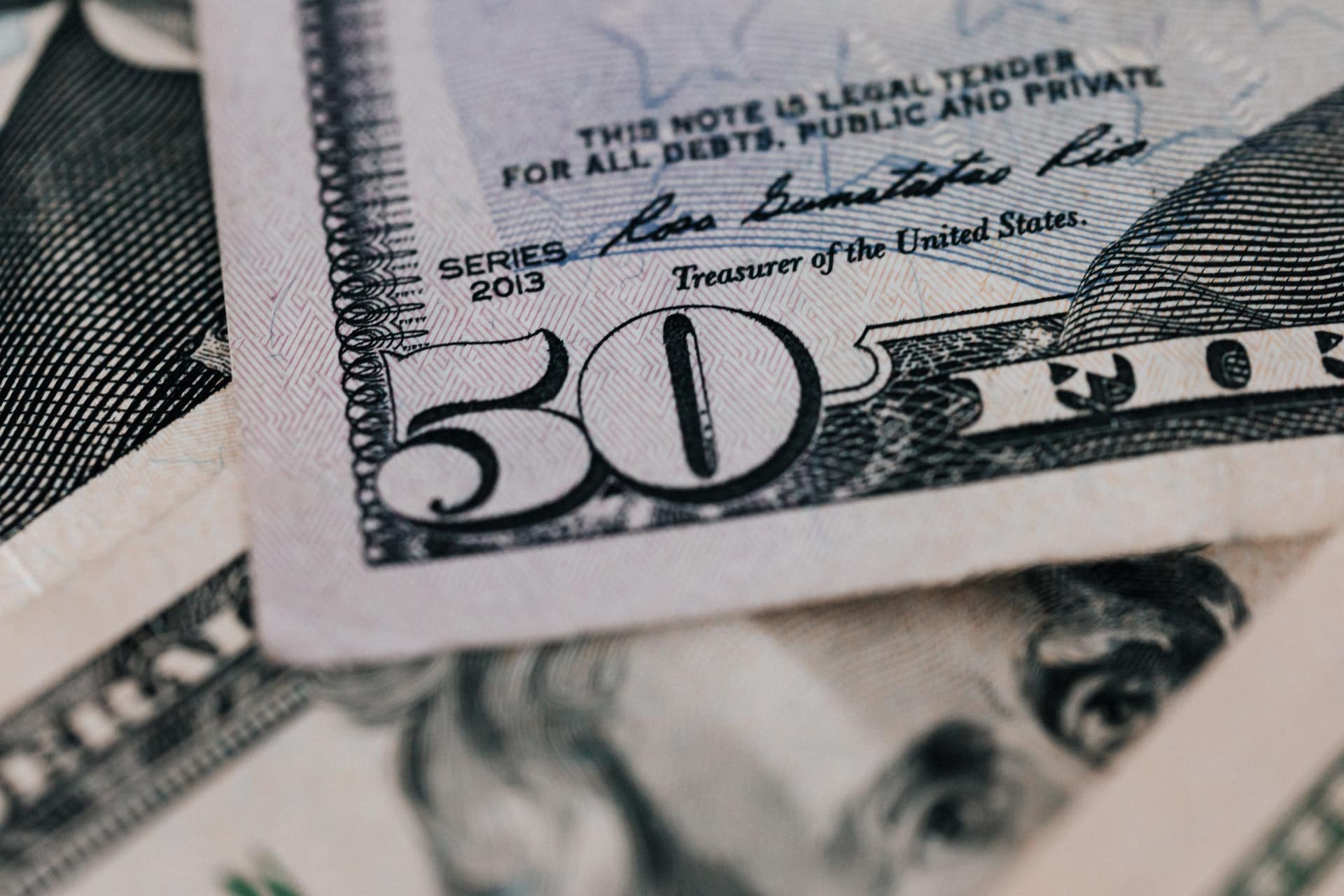When you need money to buy a home or pay for moving expenses, you may ask, “How much can I borrow?” The amount of money you can qualify to receive with loans depends on the information found in your credit report.
Approximately one out of five individuals have bad credit scores.1 Are you a consumer trying to get a loan with subprime credit? Learn how your credit score affects how much money you could get with various loans.
What Are the Pros and Cons of Borrowing Money?
| Pros of Borrowing Money | Cons of Borrowing Money |
| Access to Capital: Borrowing money can provide the funds needed for large purchases or investments. | Interest Costs: Borrowing costs money. The borrower will end up repaying more than they borrow. |
| Financial Flexibility: Loans can help manage cash flow and cover expenses when income is not immediately available. | Debt Burden: Too much debt can lead to financial stress and difficulty in managing finances. |
| Credit Building: Regularly paying off debt can help build a good credit history, which can be beneficial for future borrowing. | Risk of Default: Failure to repay the loan can lead to serious consequences, such as damage to credit score or loss of collateral. |
| Potential for Growth: For businesses, borrowed money can be used to invest in growth opportunities. | Potential for Overborrowing: Easy access to loans can lead to borrowing more than what can be comfortably repaid. |
*The pros and cons of different loans can vary. It’s important to consider your financial situation before borrowing money.
Important Terms To Know Before Taking Out a Loan
Are you thinking of taking out a loan? If so, you should learn more about loan terms so you are fully informed of your financial commitment. The process of borrowing benefits both the borrower and the lender, but unfair terms can result in financial struggles for the borrower. Read about these 8 important terms before borrowing to better understand how loans work:
- Lender — A lender is a person or financial institution that provides money to a borrower that meets their eligibility criteria.
- Borrower — A borrower is an individual or organization that receives money by agreeing to specific repayment terms that typically involve paying interest on the loan amount.
- Loan Amount — The amount of money a borrower receives from a lender. The loan amount can include the principal, interest on unpaid principal, and other charges. Every lender has a minimum and maximum loan amount they provide.
- Interest Rate — The interest rate of a loan is the amount a borrower pays for the loan. The lender determines the interest rate by analyzing the borrower’s creditworthiness.
- APR — The APR of a loan is the annual interest rate amount plus additional fees. APRs are a more accurate representation of the cost of borrowing than interest rates.
- Repayment Term — The repayment term is the repayment length of a loan. For example, a repayment term can last a few months or several years.
- Loan Payment — The loan payment is the amount of the balance a borrower pays. Loans can be repaid in one lump sum (single payment loan) or through monthly installments (installment loan).
- Loan Agreement — The loan agreement, or financial contract, specifies how the borrower will repay the money. This document must have information on the loan amount, rate, monthly payment amount, etc.
How Can I Get the Best Interest Rate on a Loan?
The interest on a loan depends on your credit. And the amount of interest you pay depends on how high or low of a rate you get. Higher credit scores typically get the best rate, while borrowers with bad credit usually get the highest rate.
It’s essential to understand your credit score if you want to borrow money. Financial experts recommend checking your FICO score at least once a year. FICO credit scores are split into five numerical categories based on creditworthiness.
- Poor Credit — 300 to 579
- Fair Credit — 580 to 669
- Good Credit — 670 to 739
- Very Good Credit — 740 to 799
- Excellent Credit — 800 to 850
How Much Money Should I Borrow?
Do you need financial help? Don’t feel bad! About 3 in 10 adults struggle to afford their monthly bills.2 If you need emergency money, determine how much you need. For example, if your car broke down, it’s in your best interest to get an estimate of the repair cost. Although it’s possible to get a substantial loan amount, it’s best to avoid borrowing more than you need or can afford to repay.
Borrowing more money than you need for an unexpected expense will result in excess interest fees and higher monthly payments. To better understand how much you can afford to borrow, it’s a good idea to calculate your debt-to-income rate.
What Is a Debt-to-Income Ratio? How Does it Affect Loan Approval?
A debt-to-income (DTI) ratio shows how much of your income goes toward repaying outstanding debt. Lenders use debt-to-income ratios to decide how much money they can borrow. If a majority of your gross monthly income goes toward existing monthly payments, then you are unlikely to qualify for the maximum loan amount.
There are financial institutions that are willing to provide substantial loan amounts to borrowers with high debt. But it’s in your best interest to calculate your current DTI ratio to determine how much you can afford to repay.
How to Calculate Your Debt-to-Income Ratio
To calculate your debt-to-income ratio, you need to calculate your total monthly debt payments and divide that amount by your monthly income. Suppose you pay $1,600 every month on bills and earn $3,000 monthly. In that case, your DTI rate is 0.53 or 53%.
Financial experts typically advise borrowers to keep their debt-to-income ratio lower than 43%. When your ratio is high, lenders may hesitate to offer more credit than you currently have. If you want to borrow a lot of money and get an affordable interest rate, it’s good to start looking for ways to pay off debt faster.
Common Loan Options and How Much You Can Borrow
Learn how much money you could potentially get with different loan options below.
How Much Can I Borrow With a Mortgage Loan?
If you are budgeting for a new home, remember you may have to pay additional costs, such as property taxes and insurance. For example, if you provide less than 20% as a down payment, you will have to get principal mortgage insurance (PMI). This form of insurance protects the lender if you experience financial issues and stop making payments. However, it also increases the cost of mortgage payments.
You can use a mortgage calculator online to discover your purchase budget and see how much mortgage payments may be. You will need to input the following information online:
- Your annual income
- Total monthly debts
- Down payment
- Preferred loan term
- State of residence
- Current credit score
You can get a mortgage loan estimate based on this data. If the mortgage loan estimate is not as high as you want, it’s a good idea to start working on improving your credit score and saving more money for the down payment.
How Much Can I Borrow With an Auto Title Loan?
The amount you can borrow with an auto title loan depends almost entirely on your vehicle’s value. The more equity your car has, the more money you may get with car loans.
To calculate how much equity you have in your vehicle after making a few car payments, you can use the Kelly Blue Book to get an estimate of the current value. Suppose your car is worth $10,000, and you still owe $2,000 on the car loan. Your vehicle’s equity is $8,000. This number is a rough estimate of the loan amount you could borrow through a title loan.
Keep in mind that your car is used as collateral during the repayment process. If you have issues paying back the title loan, you may lose possession of your car.
How Much Can I Borrow With a Personal Loan?
Personal loans are convenient because you can use the money for various expenses, unlike an auto or mortgage loan. The amount you can borrow with a personal loan is based on your credit score and income. However, there are bad credit loans available for individuals with low credit.
The personal lender decides how much money you can borrow by looking at your income and credit. The minimum loan amount for a personal loan is typically $200, although the maximum amount can extend into the thousands.
How To Get Approved for a Loan
To get approved for a loan, you will typically need to complete a few steps. The approval process changes depending on the type of loan you apply for and the lender you work with. However, the process generally involves the following:
- Complete an Application Form — You will need to submit an application form in person or online to borrow money. Most lenders require basic personal information about yourself, such as date of birth, SSN, monthly income, etc.
- Submit Documents — You may have to provide documentation, such as proof of identity and income. However, some online lenders do not require any paperwork.
- Complete Bank Verification — Some lenders provide funds through a direct deposit. In order to receive direct deposit, you must have a bank account and complete a bank verification process.
- Sign the Loan Agreement — The final step of the approval process is to sign the loan agreement and get your money. However, it’s critical to read through the entire contract so you fully understand the terms and your financial responsibility.
Can I Get Approval for a Loan With No Credit Check?
During the loan approval process, a borrower will go through a soft or hard credit check. A soft credit check, or soft pull, does not affect credit scores. In contrast, a hard credit check will decrease a credit score by a few points.
No credit check loans do not require hard credit checks. However, no credit check loans typically benefit the lender, not the borrower. Why? These loans usually have higher than average interest rates that make repayment challenging. But it’s possible to borrow money at a reasonable rate despite bad credit. Look for lenders that offer flexible requirements and bad credit loans.
How To Find the Right Loan
The right loan for a borrower depends on their reason for acquiring funds, as well as their budget. If you need money for debt consolidation, then a personal loan or home equity loan may be the right option for you. However, the best loan offer for you depends on your repayment preferences.
To help you narrow down your loan options, ask yourself the following questions:
- How much time do you want for repayment?
- Do you want to use collateral?
- Would you prefer a fixed or variable-rate loan?
- What is the highest monthly payment amount you can afford?
FAQs About Borrowing Money
It’s important to have a plan when it comes to repaying debt. Whether it’s setting up automatic payments, consolidating your debt, or prioritizing high-interest debt, there are several strategies that can help you manage and eventually eliminate your debt.
You can use an online mortgage calculator to estimate your monthly mortgage payment. You’ll need to input details such as the loan amount, interest rate, and loan term. Remember, this is just an estimate, and your actual monthly payment may vary.
Improving your credit score for personal loans usually involves paying your bills on time, reducing your debt, and regularly checking your credit report for errors. A higher credit score can help you secure loans with better interest rates.
This depends on several factors, including your income, monthly expenses, credit score, and the amount of your down payment. A mortgage calculator can help you estimate how much you can afford.
Fees can vary depending on the lender and your creditworthiness. Common fees include origination fees, late fees, and prepayment penalties. Always read the loan agreement carefully to understand all the fees involved.
Alternatives can include saving up an emergency fund, seeking assistance from local charities or government programs, or considering a side job for additional income. It’s important to explore all your options before deciding to borrow money.
There are many online resources that offer personal loan calculators. These tools can help you understand how much you’ll owe over time, given the loan amount, interest rate, and loan term. Always remember to use these tools as a guide and consult with a financial advisor for personalized advice.
CreditNinja: How Much Money You Can Borrow
When you apply for a loan, the financial institution will pay close attention to your annual income and creditworthiness to determine your loan amount, rate, and other terms. However, every lender offers different benefits and terms, so ensure you shop around to find the right loan offer for your situation.
At CreditNInja, we believe that everyone should have access to fast financial relief. However, we also think it’s crucial for borrowers to only borrow as much as they need. If you are looking for a loan, review our free online blog for tips on improving your personal finance and credit.
References:





